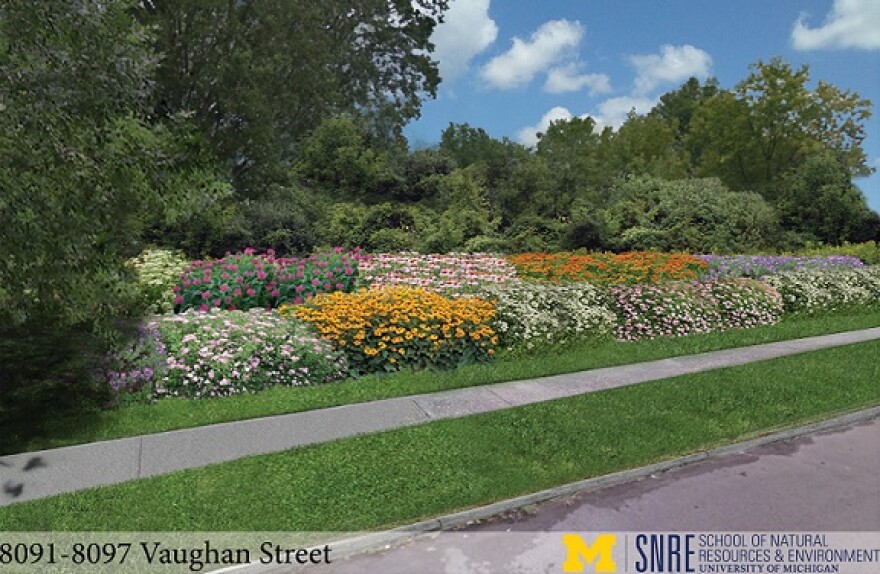A pilot project has transformed several demolished Detroit homes into gardens designed to capture and soak up stormwater and the idea could extend to other parts of the city as part of efforts to curb pollution in waterways, officials said.
The Detroit Water and Sewerage Department, the University of Michigan Water Center and the Detroit Land Bank Authority are among those that worked on the project to build four "bioretention gardens" on the city's west side.
Joan Nassauer, a University of Michigan professor of landscape architecture, said basements of demolished homes were filled with more-porous material than the clay soils that surround them to help soak up water and, in the process, send less water into area sewers.
Those involved said each garden is expected to reduce stormwater volume by about 300,000 gallons a year and should alleviate street flooding during big storms. That would also improve the health of the Rouge River, which empties into the Detroit River, and the Great Lakes.
Detroit has worked for years to deal with blight, including vacant homes and buildings, and thousands of structures have been razed. Basements typically are filled and the vacant lot often ends up covered by a mix of grass and weeds.
The bioretention garden project aims to make those lots aesthetically pleasing and useful.
"This can be done in a way that immediately benefits people who live nearby," Nassauer said ahead of a Wednesday event celebrating the project.

The project on properties owned by the Detroit Land Bank Authority was done with help from a $258,000 grant from the University of Michigan Water Center, with support from the Erb Family Foundation.
The Detroit Water and Sewerage Department contributed about $500,000.
Before construction started, residents told researchers that the gardens would help them feel safer and could improve property values, Nassauer said.
Area students will learn how the gardens improve the environment through hands-on activities at the gardens and classroom materials developed by the University of Michigan.
--David Runk, Associated Press






